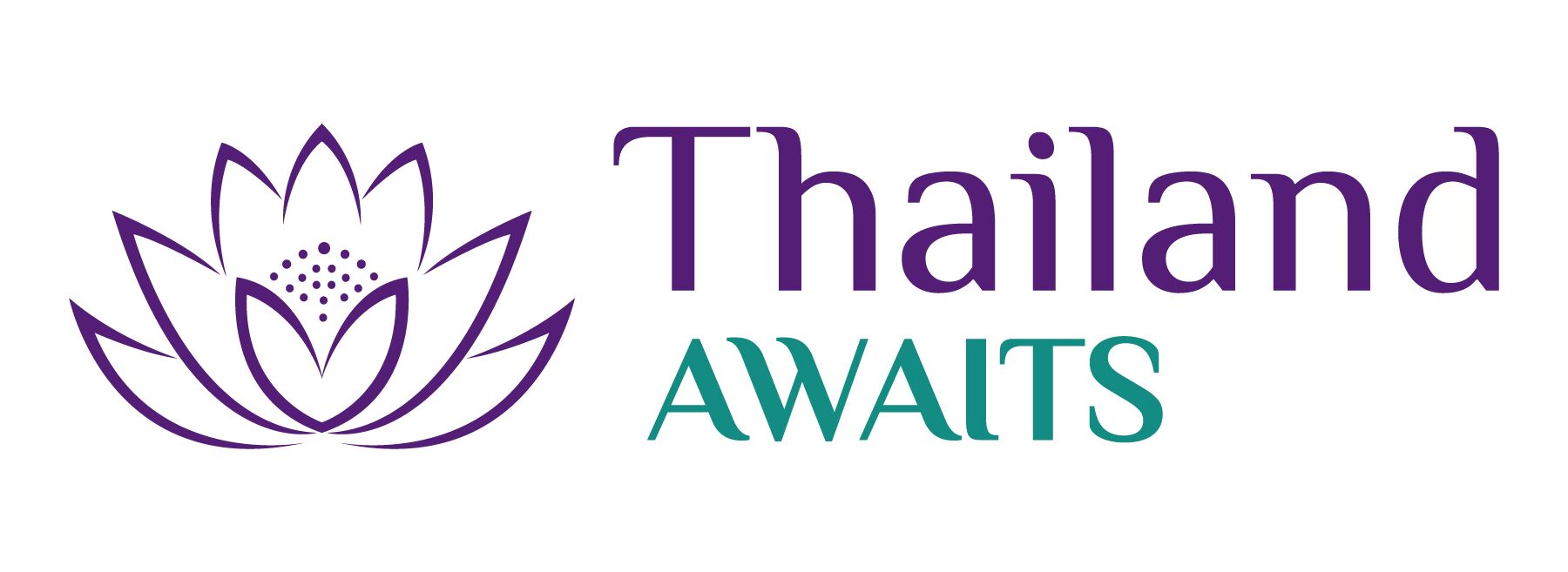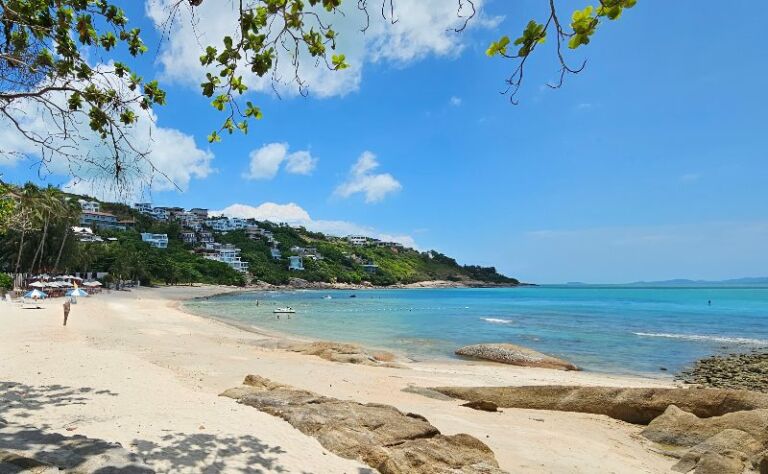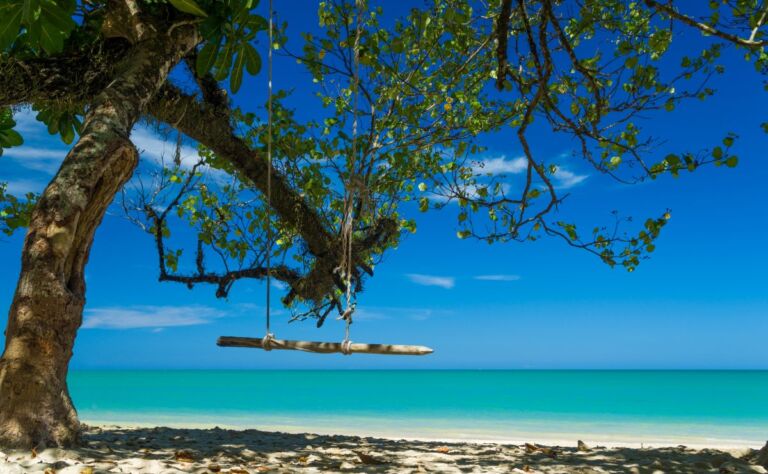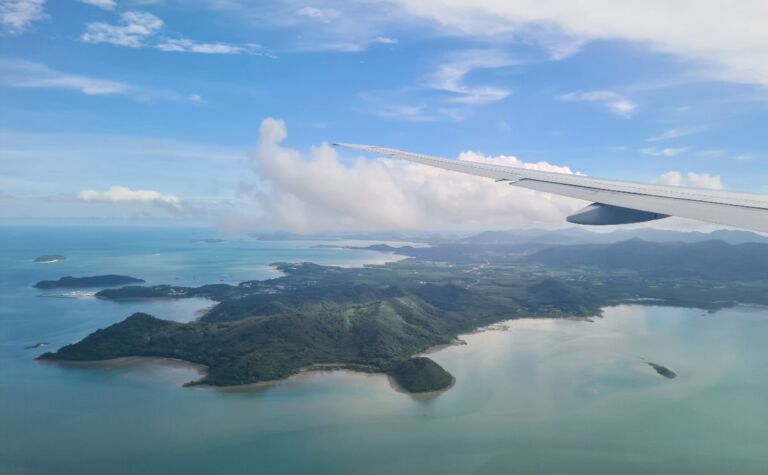Bangkok Belly: Understanding and Preventing Traveller’s Diarrhea in Thailand
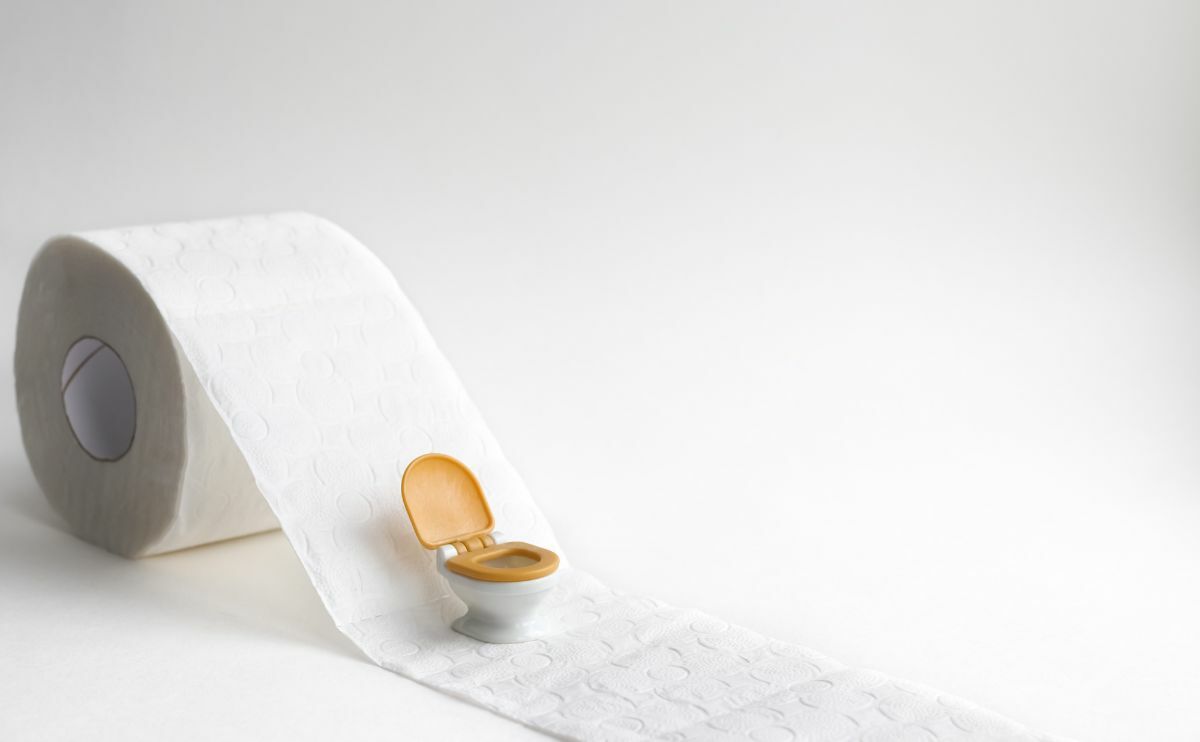
On their recent trip to Thailand, Paula’s husband Charles got a case of Bangkok Belly, so we figured it was time to address this rather icky but sadly all-too-common ailment affecting most travellers to Thailand.
I have my fair share of horror stories, and Paula has politely asked me to keep them at a minimum, lol. So, let’s discuss Bangkok Belly, why it’s so common, and how to recognise and treat it. I’ll even give a few prevention tips.
How Long Does Bangkok Belly Last? With proper treatment, most cases resolve within 2-4 hours. Without treatment, symptoms can persist for 3-5 days and may require medical attention. Stephen’s experience shows that immediate treatment with Immodium and electrolytes gets you back on track the same day.
This page contains affiliate links. Please see our disclosure policy for more details.
I’ll be referring to going to the toilet often, and instead of talking about poo, I’ll use the phrase ‘taking the porcelain bus tour.’ I heard this years ago, and it helps avoid using icky terms.
What is Bangkok Belly?
Bangkok Belly—also called Thai belly, Thailand belly, or traveller’s diarrhoea—is the most common health issue visitors to Thailand experience. It causes urgent, watery diarrhoea, stomach cramps, and sometimes nausea or fever.
The condition isn’t unique to Bangkok; you can get it anywhere in Thailand, from Phuket to Koh Phangan. Most cases are caused by your gut encountering unfamiliar Thai bacteria rather than contaminated food, though poor food handling can contribute.
How Long Does Bangkok Belly Last?
With proper treatment, most cases resolve within 2-4 hours. Without treatment, symptoms can persist for 3-5 days and may require medical attention. Stephen’s experience shows that immediate treatment with Immodium and electrolytes gets you back on track the same day.
Bangkok Belly vs Thai Belly – What’s the Difference? Nothing – they’re the same condition. “Bangkok belly,” “Thai belly,” and “Thailand belly” all refer to traveller’s diarrhoea experienced in Thailand. Some visitors also call it “Phuket belly” or “Thai tummy.”
Bangkok Belly Symptoms: What to Expect
Thai belly symptoms appear suddenly—often within hours of eating. Here’s what most travellers experience:
It comes over you very quickly, and you’ll need to make an urgent dash for the nearest bathroom. The first symptom is the urgent need to take the porcelain bus tour. This adventure is most often of the liquid kind, unpleasant, and has a really awful odour—worse than usual. Severe bouts can also be accompanied by vomiting, but it’s not as common.
You may also experience sharp shooting pains in your stomach. That’s a pretty clear indication that your case is bacterial and not viral, and you’ll need to at least get to a pharmacy, more on that in a sec.
How to Pinpoint How You Got It
Ok, this isn’t a hard or fast rule, but it’s worked for me. It’s common for Bangkok Belly to appear out of nowhere, and it’ll seem like moments after eating something, you have to race to the bathroom.
Don’t blame what you just ate, though. It’s actually the meal before that’s the culprit.
The harmful bacteria has just been sitting there, patiently waiting for your next meal; as soon as you put something new on top of the bacteria, it acts up.
Why is Bangkok Belly So Common in Thailand?
One primary reason for the prevalence of Bangkok Belly among travellers is the difference in gut bacteria between Western and Eastern populations. Here’s a mini science lesson for you.
Your gut microbiome, a collection of microorganisms living in the digestive tract, adapts to your regular diet and environmental conditions over time. In Western countries, diets are often higher in processed foods, sugar, and fat, whereas Eastern diets, particularly in Thailand, frequently incorporate a variety of spices, herbs, and different food preparation methods.
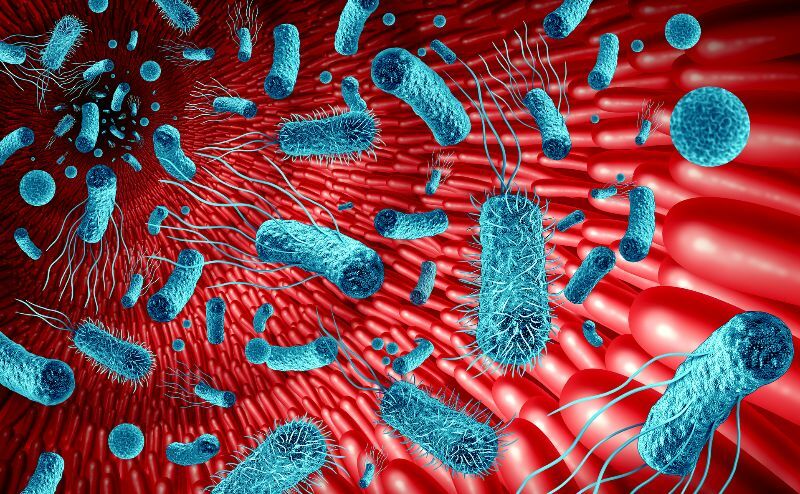
When you travel from a Western country to Thailand, your gut is suddenly exposed to new bacteria, viruses, and parasites typically found in local food and water. Because your body is not accustomed to these microorganisms, it becomes more susceptible to infections, leading to traveller’s diarrhea. This change can overwhelm your gut, which lacks the necessary defences to combat these unfamiliar bacteria, resulting in Bangkok Belly.
The first year I was here, I got sick almost once a month. It never really surprised me, as I knew that my body was getting used to the bacteria. It’s less common now, but I do get it, and it’s primarily due to unsafe food practices, which I’ll get to in a bit.
Common Causes of Traveller’s Diarrhea
It’s a bit unfair of people to say you get Bangkok Belly because Thailand is a dirty place (I’ve heard this from many tourists over the years). As you just learned from the science lesson above, it’s mostly about your body meeting up with new bacteria. I’ve been here for eight years and haven’t been back to Australia in that time. I’m 100% sure that if I went back, I’d get traveller’s diarrhea from the ‘foreign’ bacteria back there.
Some travellers also experience gastrointestinal distress due to changes in diet, stress, or pre-existing health conditions, which the local environment may exacerbate.
There are other causes, and yes, they do relate to food safety practices. The culprits are parasitic infections, often from consuming contaminated water or inadequately cooked food.
Here’s something to consider. At the very start of the pandemic, when we were all bathing in alcohol gel and washing our hands five hundred times a day, my doctor friend who works in the ED told me that they’d never seen so few cases of flu, colds, and diarrhea as during those first few months. It turns out that washing your hands frequently can significantly benefit your health—who knew? LOL.
Street Food Safety: What You Need to Know
Ok, it’s time for my first story. My very first trip to Thailand was to Phuket in 2010. I had a great time, eating as much local food as I could. I remember buying a fried chicken leg from a lady who must have been 100 years old, and she cooked it on a grill over some coals on the side of the road.
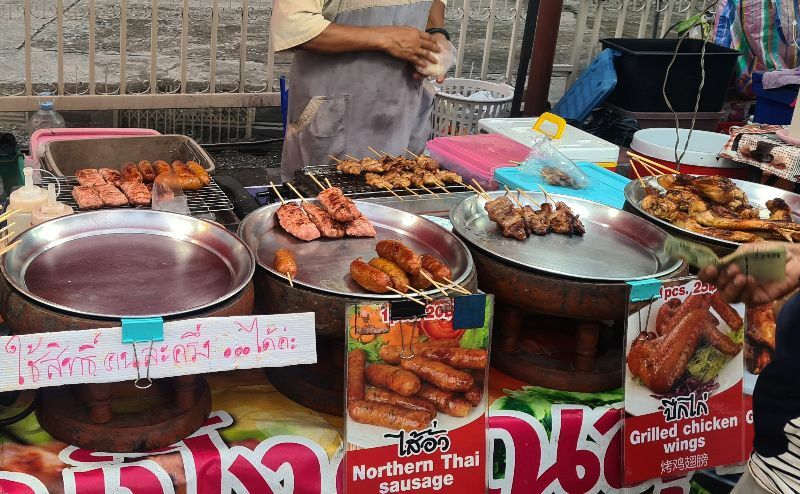
My colleagues kept laughing at me, telling me I’d be sick for sure. Well, I safely made it back on the plane three days later without being ill. I ate my food on the plane and had to bolt for the toilet. It turns out the burger that I ate at Burger King from Phuket airport was the culprit.
So don’t be so hasty to blame street food vendors.
Having said that, though, here are some things to be mindful of and watch out for. The beauty of buying food from street vendors is that you can see them cooking it, and you’ll notice that it’s done very well, surprisingly hygienically, and therefore unlikely to be loaded with dangerous pathogens.
Not everyone is perfect, and the hygiene practices of some food handlers—again, this doesn’t just apply to Thai people; I’ve had food poisoning in Sydney many times, too. This action can vary widely and can influence the likelihood of ingesting harmful pathogens. I notice people in Thailand still wash their hands more frequently than before and feel more confident in buying food from street vendors.
The vendors themselves aren’t the only thing to be mindful of, but sometimes the ingredients. I’m hesitant to eat anything that’s raw, including salads. You just can’t be sure the water they’ve been washed in isn’t tainted. Remember, the tap water in Thailand isn’t all that safe to drink. This applies to ice, too.
There are legit ice factories all over Thailand that deliver clean, fresh ice to supermarkets, bars, hotels, cafes and restaurants nationwide.
This ice is identified by its shape. It’s often cylindrical or in blocks. You can buy this ice in bags in mini-marts for around 5 baht, and it’s safe.
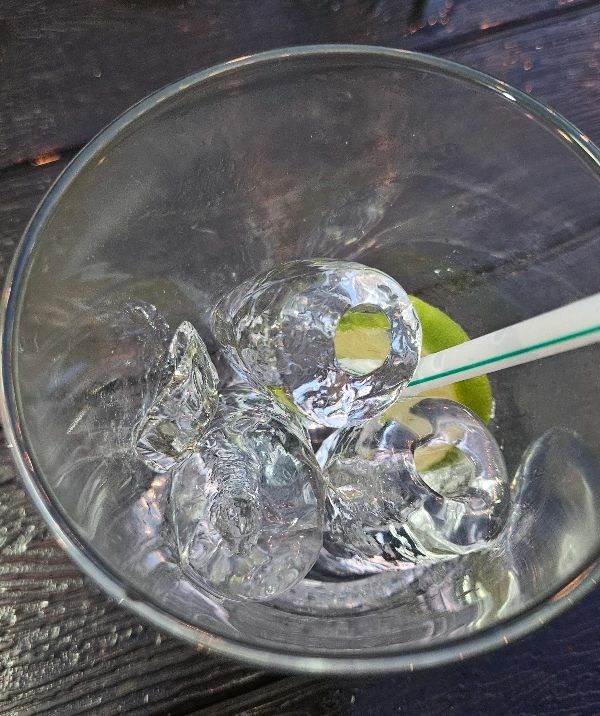
It’s the shaved and crushed ice that I avoid, yes it may have come from the shaped ice, then again it might have been made from a fridge door using tap water.
How and When to Treat Bangkok Belly
First, don’t let it get you down or destroy your trip. Appropriately treated, you’ll be back on deck in a couple of hours. Consider it a rite of passage; no trip to the East will be smooth sailing.
You might be tempted to just ‘ride it out’ and let the body deal with it. Take it from me: please don’t try this.
Here’s another story:
At the end of my first month living here I got a nasty bout of it, I’m talking both ends, and volumes. I wanted to see if my body would just let it pass. It didn’t. Five days later, I’m in the hospital attached to a drip. My body had been depleted of so many nutrients I was wasting away.
So please treat it as soon as you have your very first porcelain bus tour. What comes out of you is more than you think. Much-needed vitamins, minerals, and water are being rapidly depleted.
Bangkok Belly Medicine: What Works in Thailand
The most effective over-the-counter treatments available at any Thai pharmacy:
- Immodium (Loperamide): Stops diarrhoea within hours – 2 tablets immediately, 1 more if needed
- Royal-D electrolyte powder: Replenishes lost nutrients – one sachet per 600ml water, sip slowly
- Norfloxacin antibiotic: For bacterial infections with stomach pain – available over the counter, around 100 baht
Total cost for treatment: approximately 200-300 baht (AUD$7-10). No doctor visit needed for basic cases.
Bangkok Belly Treatment Plan
The first thing to do is stop the diarrhea. Immodium is known the world over and does the job exceptionally well. Take two tablets immediately after your first trip to the toilet. Take one more tablet if you make another journey on the porcelain bus in the following hour. This should do the trick; if not, it’s time to get medical attention.
After the icky part has stopped, if you’re not suffering from sharp pains, you’re in luck (if you can call it that). You’ve probably only got a minor case, and you’ll be right as rain very soon.
The other thing you need to do is replenish the lost nutrients. Effervescent powder is the best. I use the Royal-D brand. You can get it at all pharmacies and even some mini-marts. Put one sachet in a 600 ml bottle of water and sip it—do not gulp it. There’s no limit to the amount you can drink of this. It’ll give you the energy to continue enjoying your holiday.
You’ll start to feel pretty good an hour or so after the toilet trips have stopped and you’ve had at least two sachets of Royal-D. Things should return to normal sometime in the next 48 hours.
When to Seek Medical Help
Thankfully, most of my cases of Bangkok belly have been efficiently treated as above. Within a couple of hours, I could go about my day.
There may be an occasion when the case is more severe, and that’s when you need to go to a pharmacy at the minimum. As I mentioned earlier, harmful bacteria can cause what feels like sharp stomach pains. The only way to combat this is with a broad-spectrum antibiotic. I’m most commonly given Norflaxin. It’s sold over the counter and must be taken twice daily before meals.
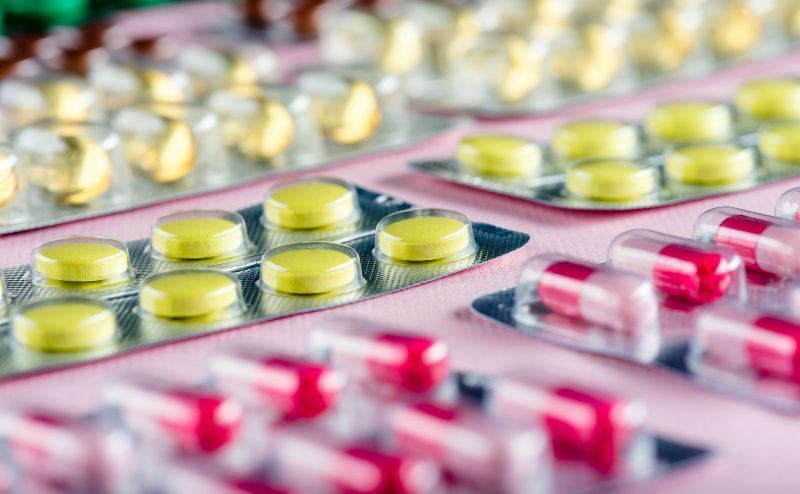
Now, please don’t just stock up on this antibiotic brand, as it’s not for everyone. It’s the one that works for me, but I don’t have any allergies. Let the pharmacist or doctor advise you correctly. When Charles was ill, Paula popped into the pharmacy, and they gave her a course of antibiotics and an electrolyte drink that had him on the road to recovery in no time for the total sum of AUD$7.
If the simple meds from the pharmacist don’t work you may need to see a doctor. This is when its a good time to have travel medical insurance.
Bangkok Belly and Alcohol
Ok, so you’re here to have a holiday and enjoy yourself, and you’ve been afflicted with Bangkok Belly. You’ve taken some Immodium and Royal-D and are starting to feel like your old self, and you’re ready to go out and party. You’d like to know if beer is allowed. Well, this is 100% up to you; I’ve been known to have a drink the same evening I’ve had a minor dose of Bangkok Belly, but here’s what the medics say:
Alcohol and Immodium
Combining alcohol with Immodium (loperamide) is generally not recommended. Alcohol can irritate your stomach lining and can contribute to dehydration, a condition you should avoid, especially if you are experiencing diarrhea. If you need to take Immodium, it’s best to abstain from alcohol to help your body recover faster and avoid additional complications.
Alcohol and Norflaxin
Mixing alcohol with norfloxacin is not advisable. Norfloxacin, like other antibiotics, may interact negatively with alcohol, making the medication less effective and potentially exacerbating side effects. Alcohol can increase the risk of side effects such as dizziness, upset stomach, and drowsiness, hindering your recovery process. It’s best to avoid alcohol altogether while you’re on norfloxacin to give your body the best chance to fight off the infection effectively. Prioritising your health by steering clear of alcohol can speed up your recovery and minimise discomfort.
How to Avoid Bangkok Belly
While you can’t completely prevent your Western gut from reacting to Thai bacteria, you can reduce your risk:
Safe Practices
- Wash hands frequently, especially before eating
- Drink bottled water only—never tap water
- Watch for properly shaped ice (cylindrical blocks, not crushed)
- Choose food vendors where you can see cooking happening
- Avoid raw salads unless you’re confident about water quality
Gut Preparation Take a daily probiotic or drink Yakult (available everywhere for about 10 baht) to support your digestive system. Start a few days before arrival if possible.
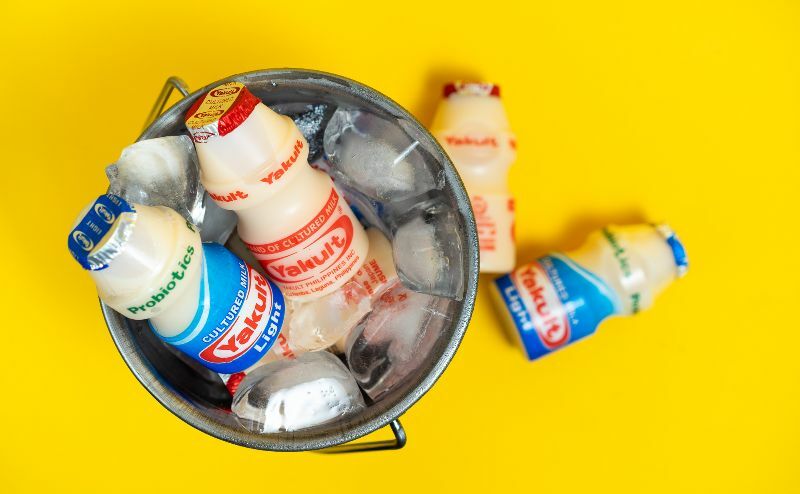
When Street Food is Actually Safer The food cooked fresh in front of you at street stalls is often safer than pre-prepared food sitting under heat lamps at airports or hotel buffets. Stephen’s Burger King incident proves this—fresh street food didn’t cause problems, but airport fast food did.
Bangkok Belly FAQs
Is Bangkok belly contagious? No. It’s caused by your individual gut bacteria adjusting to Thailand’s local bacteria, not a virus you can spread to others.
What’s the sweet belly Thailand disease? There’s no condition called “sweet belly.” This appears to be a search confusion—people are looking for information about Bangkok belly and traveller’s diarrhoea.
Can I prepare my stomach for Thailand? Start taking probiotics a week before travel and continue daily. Yakult or probiotic yogurt helps your gut adapt more easily.
Why does Thai food give me diarrhoea? It’s usually not the Thai food itself but the unfamiliar bacteria your gut encounters. Thai cuisine’s spices and heat don’t cause Bangkok belly—bacterial exposure does.
Don’t Let Bangkok Belly Ruin Your Trip
A dose of Bangkok Belly isn’t the end of your holiday. Treat it immediately; you’ll only be out of action for a few hours. Please don’t try to ‘ride it out’ or go on a massive blinder immediately afterwards, and you’ll be able to laugh it off as another ‘holiday statistic.’
Planning a Thai adventure? Join our friendly Facebook community Thailand Awaits: Trip Planning for Beginners. Get expert advice from locals and experienced travellers, ask your questions, and discover how to make the most of your journey through Thailand.
